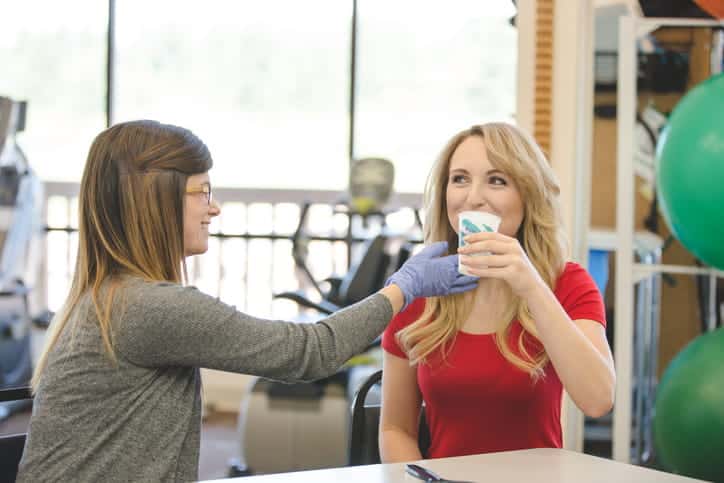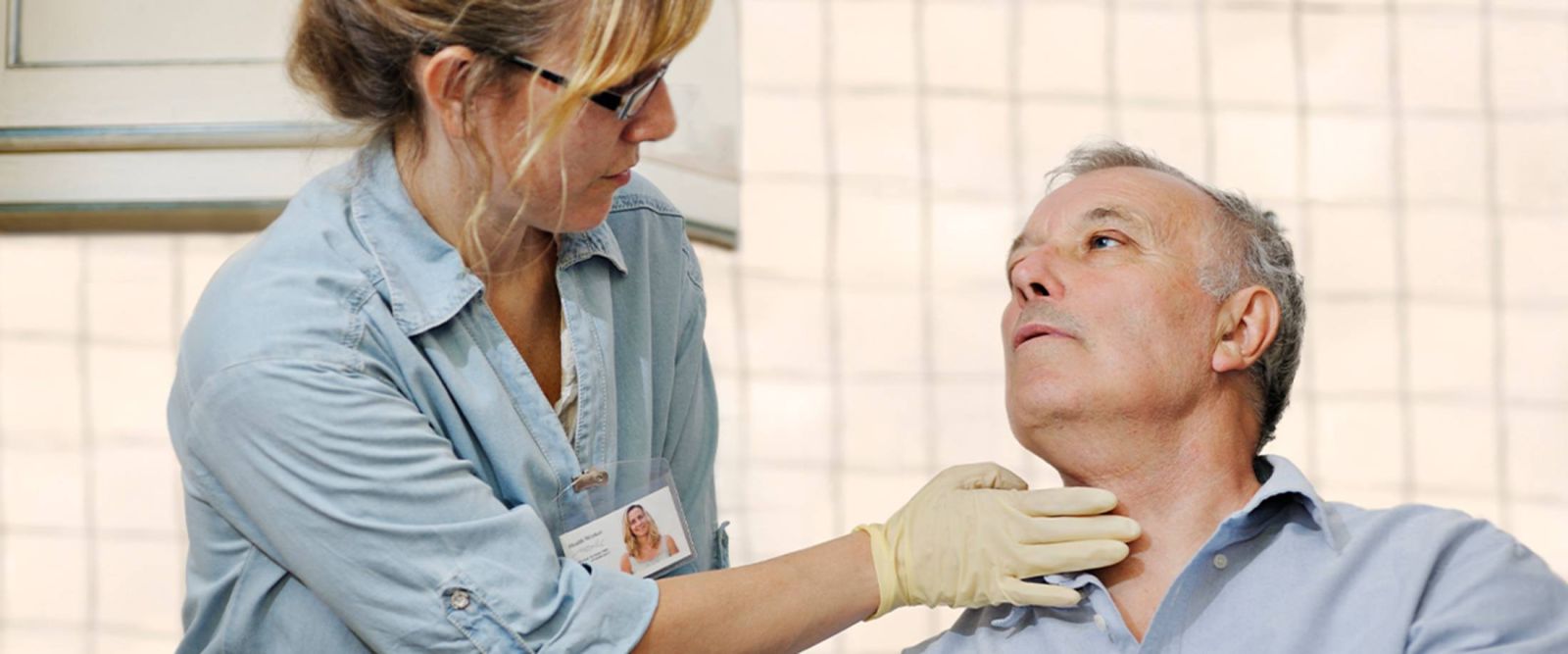Adult Speech Therapy

What is Speech Therapy?
Speech Therapy focuses on enhancing and restoring communication skills. Patients from ages newborn to 90 can benefit from speech therapy services. Services generally fall into four categories:
- Speech - articulation, fluency/stuttering, voice quality
- Language - using and understanding vocabulary, correct grammar and sentence structure
- Swallowing - muscle coordination of the swallowing mechanism
- Cognition - processing and hearing language, memory and attention
Diagnoses

Pediatrics
Common diagnoses in children include delays of speech and language. Children tend to develop skills at a certain age range. Childhood milestones are often discussed during well-child appointments with a primary care provider. Appropriate speech and feeding milestones for children ages 0-5 can be found here:
https://www.asha.org/public/developmental-milestones/
If a child is not meeting appropriate speech and language milestones, a primary care physician may refer the child to speech therapy. Speech Language Pathologists (SLPs) are therapists who provide therapy to enhance and support of children's communication development. Early intervention is key to maximizing therapeutic success.
Another commonly occurring diagnosis in both adults and children is dysphagia. When patients struggle with chewing and swallowing tasks, they have difficulty moving food and drink through the mouth to the esophagus and into the stomach. Signs of feeding and swallowing disorders in children can be found here:
https://www.asha.org/public/early-identification-of-speech-language-and-hearing-disorders/

Adults
Swallowing
Adults may experience a globus sensation like something is stuck in their throat, or like food/drink might be going down the wrong pipe or getting stuck. Some patients can experience coughing or gagging while eating, or experience frequent infections like pneumonia. Swallowing issues lasting longer than two weeks should prompt a visit to a primary care physician (PCP), who can place a referral for speech therapy services, if appropriate. Speech therapy may help strengthen the muscles used for swallowing, voice/vocal quality, and cognition.
Voice
If adults or children's voices are breathy or hoarse for longer than 2 weeks, or it is becoming more difficult or painful to produce speech, a primary care physician should be contacted to obtain a referral.

Thinking and cognition
Speech-Language Pathologists (SLPs) perform a functional skills assessment, which can help them evaluate a person's ability to use communication in daily routines. SLPs can use this information to focus on ways to improve a patient's memory, focus, attention to tasks, and more. If a patient suffers a stroke, traumatic brain injury, or has been diagnosed with a progressive disease like Alzheimer's, Parkinson's Disease, or ALS/Lou Gehrig's Disease, speech therapy should be considered.
Adults and children can suffer from concussions. Concussions can affect memory and concentration. If symptoms do not resolve within 72 hours, a primary care provider should be consulted for treatment and a referral.
Treatments
Treatments vary based on diagnosis.
Locations
| Adults | Pediatrics |
| Waverly Health Center | Waverly Health Center |
| Green Entrance | Red Entrance |
| 312 9th St SW | 312 9th St SW |
| Waverly, IA 50677 | Waverly, IA 50677 |
| (319) 352-5644 | (319) 483-1375 |
| Taylor Therapy - Parkersburg Clinic (Adults and Pediatrics) |
| 1306 Hwy 57, Ste B |
| Parkersburg, IA 50665 |
| (319) 346-9783 |
How do I get a referral?
Contact your primary care physician (PCP) to discuss your speech and language concerns, as well as a request for speech therapy services. A PCP can then send a referral for speech therapy services.

Swallow Studies
What are swallow studies?
A videofluoroscopic study (VFSS) is a test which allows and SLP and radiologist to see how food and drink travel through the mouth and throat during a swallow. Patients arrive at the x-ray department where they are asked to eat and drink foods/liquids with barium added to them. The barium allows the food/drink to show up on x-ray.
Diagnoses
Aspiration (food/drink going into the airway) can be diagnosed with a VFSS. Aspiration can cause frequent bouts of pneumonia. A VFSS allows the SLP to ask a patient to try performing various maneuvers or positions to determine if they are helpful in swallowing food or drink. Different textures of food or thickened liquids can also be trialed to determine if they improve aspiration for a patient. a VFSS allows the SLP to "look inside" the patient's swallow, and is useful to determine if various foods/liquids are safe for the patient to consume.
Treatments
Following a VFSS, an SLP asks patients to perform various maneuvers or positions to strengthen swallowing muscles. After treatment, a follow-up VFSS can be scheduled to monitor progress.
Location
| Waverly Health Center |
| Green Entrance |
| 312 9th St SW |
| Waverly, IA 50677 |
How do I get a referral?
Contact your primary care physician to discuss your symptoms and, if appropriate, a referral request will be placed by your physician.

